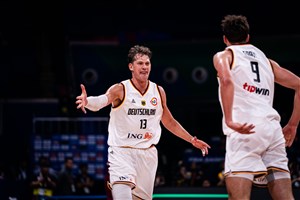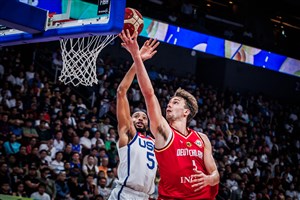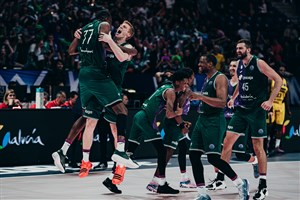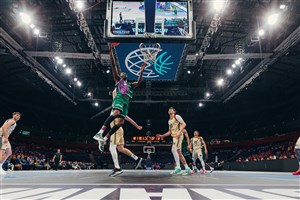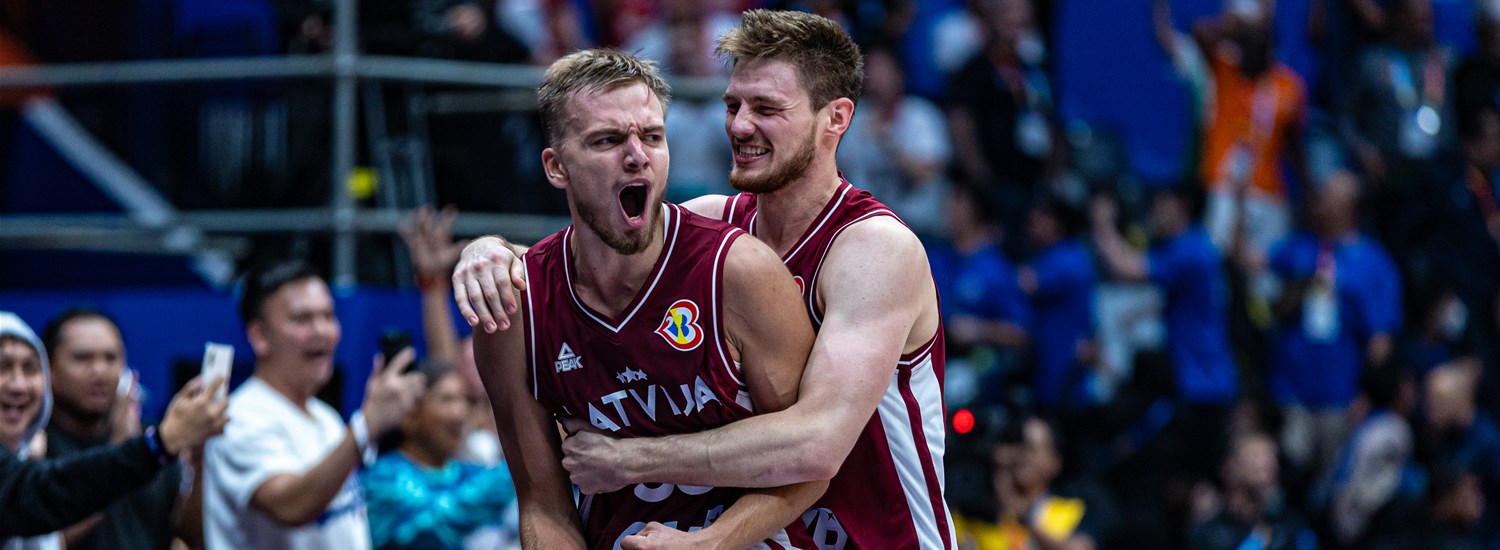
Lessons learned from a riveting World Cup
VALENCIA (Jeff Taylor's Eurovision) - Thirty-two teams, 92 games, three countries and one winner.
Check that, multiple winners!
The FIBA Basketball World Cup had all of the above at the 17-day event staged in Manila, Okinawa, and Jakarta. Kudos to Germany, the country crowned champions for the first time.
But there were a lot more reasons for teams, players and coaches, fans and federations to be happy. Here's what we learned at the 19th edition of the World Cup which, and this is not up for debate, is the best ever staged.
The whole is greater than the sum of its parts
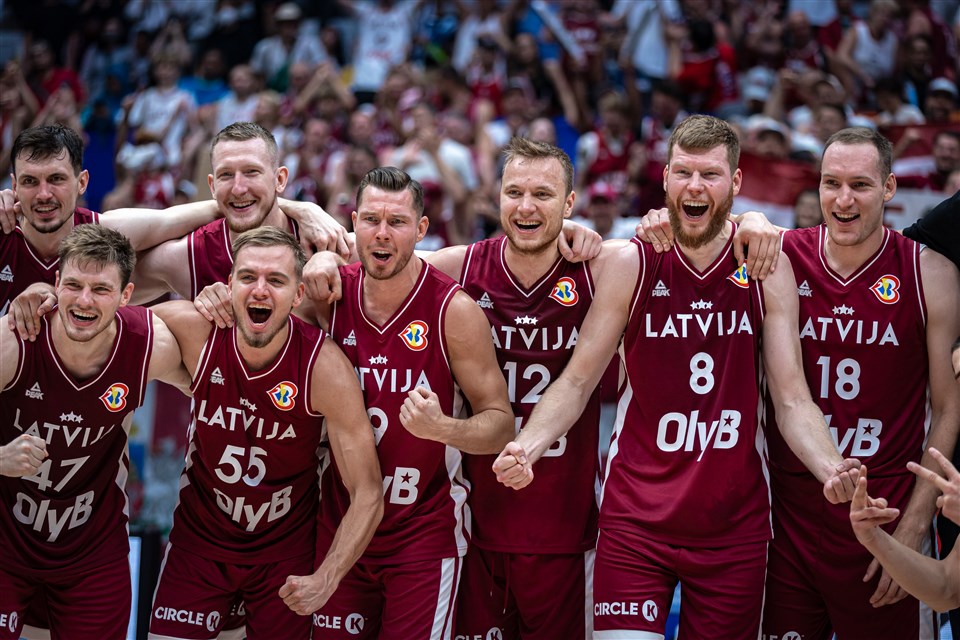
There were cases of squads, despite losing players to injuries right before or during the tournament, locked in as a unit and not only competed, but got better because they played as a team. Latvia lost key players like superstar Kristaps Porzingis just days before the start of the event, and veteran point guard Dairis Bertans during the tournament, yet played arguably the best basketball in the history of their country because they focused and played as a team.
Coach Luca Banchi was also bold enough to select the players that made a real team, that gave it the best chance to win, which meant this time not including veterans Jannis Timma and Mareks Mejeris. Latvia rose 22 spots to No. 8 in the FIBA World Ranking!
Ditto for Serbia, who didn't have Nikola Jokic this summer. After losing Boris Simanic, who had his kidney removed following a blow to his side in the game against the South Sudan, Serbia excelled the rest of the way against Italy and Canada and got to the Final where only an excellent Germany denied them glory.
Sometimes it's better to be lucky than good

Is there ever a good time to face Lithuania? The answer, as Serbia proved, is yes. And that's immediately after they stun USA in the last game of the Second Round. That meant that Italy, despite leaving Araneta Coliseum as the top seed, faced USA in the Quarter-Finals, and Serbia got a matchup they liked against Lithuania. Remember USA thumping Serbia in the 2014 World Cup Final and in the Gold Medal Game of the 2016 Olympics? That was the last team they wanted. And Lithuania, well, there was no way they'd be juiced up to face Serbia as they had been against USA. From there, USA pummeled the Italians, 100-63, and Serbia stomped all over Lithuania, 87-68.
A World Cup can be a transformative tournament
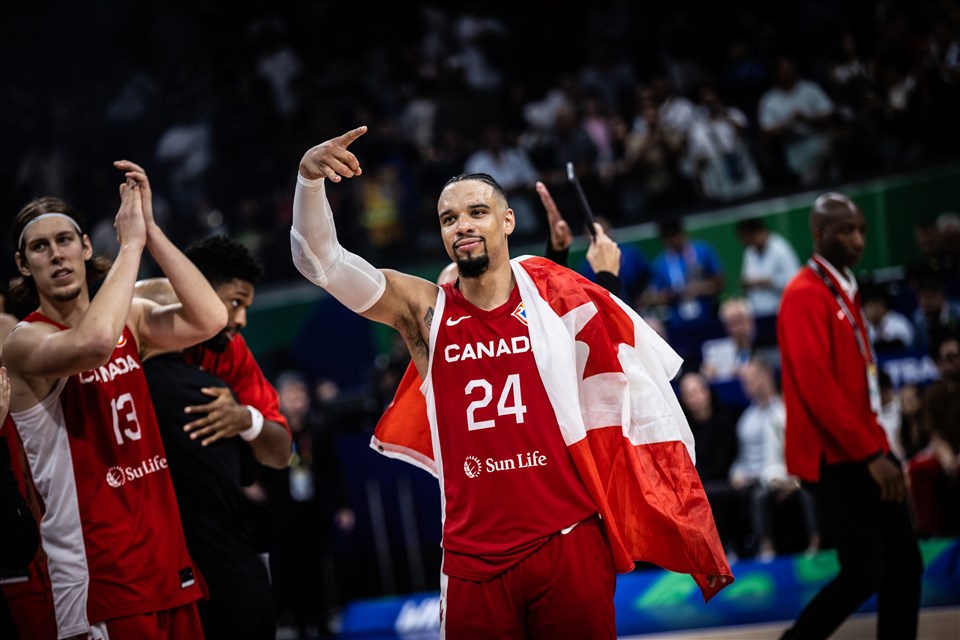
Dillon Brooks heard boos during the tournament as a villain, yet left as a hero and a player with newfound self-belief after helping Canada win the Third Place Game over the USA. It was the biggest win in Canada's history. Brooks became the latest player to boost his reputation with an outstanding World Cup.
We've already talked about Latvia, but it's obvious that the World Cup also changed coach Luca Banchi's life. The best coach from the World Cup has now signed with Italian powerhouse Virtus Bologna. And his starting point guard Arturs Zagars signed with Fenerbahçe, increasing very significantly his salary.
Continuity is important, but not the be all and end all
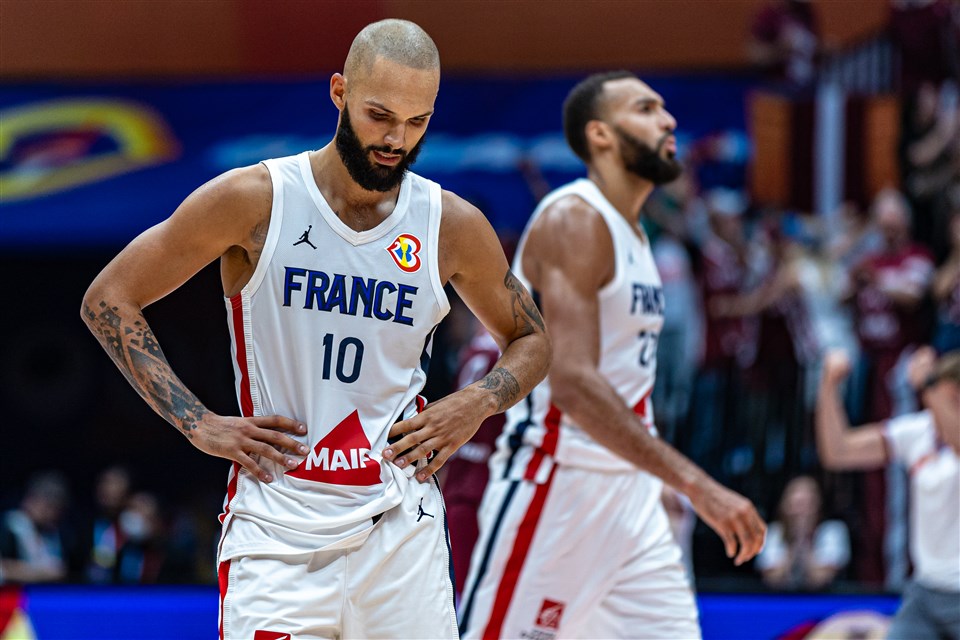
There is no doubt that teams that had players who had been a part of the national team setup before were better equipped on the big stage. Germany had numerous players from past tournaments who came back to play for a third straight summer and ended up as champions. Various players in the Serbia setup had, at one time or another, played for the national team. They reached the Final. Even so, there was plenty of experience in the France team and they came up short. Australia had plenty of experience, too, and missed the Quarter-Finals. Is there any regret for Australia that Matthew Dellavedova, a glue guy with a lot of experience, didn't make the team, and with Australia instead taking a few Boomers that didn't play much?
Luka is as popular a player in Asia as there has ever been
Remember how Kobe Bryant heard the applause in Beijing at the 2008 Olympics, when he played for USA? Luka Doncic heard just as many cheers when he ran onto the Mall of Asia Arena court in Manila with Slovenia. Even though Slovenia lost in the Quarter-Final Round, Luka was such a big draw that the fans came out to watch and cheer him on.
World Cup is the place where new stars have coming-out parties
Arturs Zagars of Latvia was a revelation! Oh, how he took apart France! He averaged 12.4 points and 7.4 assists per game. In the battle of Baltic brothers against Lithuania in Latvia's last game, he had 17 dimes. That was a single-game record at the World Cup. It was not a guarantee that Josh Giddey would live up to the hype, but he did. He was probably Australia's best player in his first full tournament with the senior team, averaging 19.4 points, 5.0 rebounds and 6.0 assists per contest!
Germany delivered a lesson on how to build a champion
View this post on Instagram
Again, sometimes tough decisions have to be made and Germany made them, after playing at the Tokyo Olympics. The team first put Gordie Herbert in charge. He then left no doubt that Germany would rely heavily on Dennis Schroder, a player not in the Olympic team, and got the best out of a player that some viewed as selfish.
Herbert went all in on Dennis, making him the captain, and the result was third place at the EuroBasket and a world title. Germany also showed that playing in a World Cup group of death against Australia, Finland and Japan can be good. The travel day didn't hurt them, either, from Okinawa to Manila. By embracing the group of death, and winning those games, it gave them a steely confidence and self-belief.
Offense puts fans in seats but defense wins championships
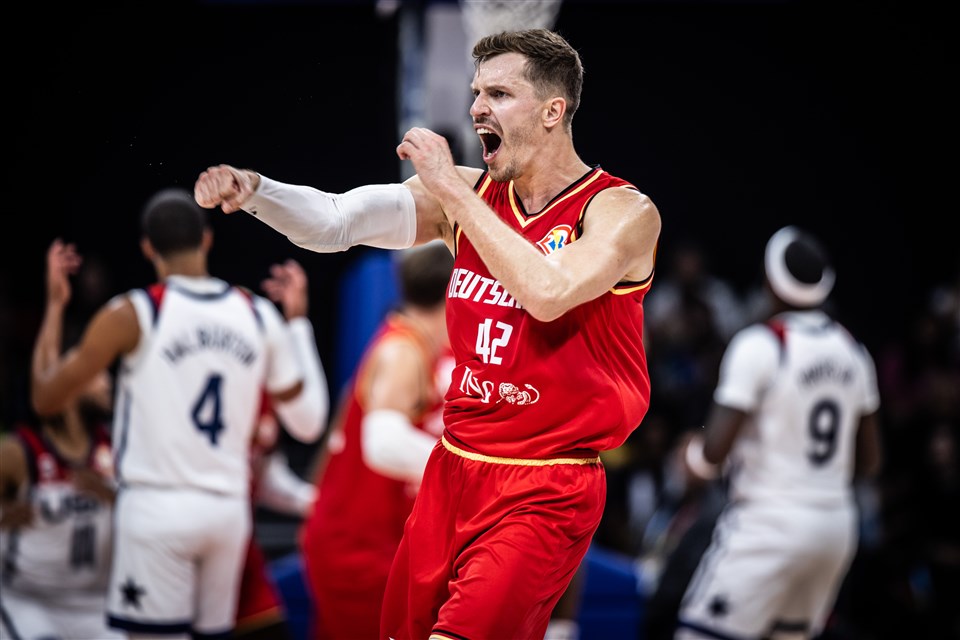
While there were a lot of good things USA did at the World Cup, defense and rebounding were not two of them. Steve Kerr's team gave up 110 points to Lithuania and lost, 113 to Germany and lost, and 127 to Canada and lost.
World Cups can be a success even for countries that go out in Second Round

There were positive steps for Africa. South Sudan lived a dream and qualified for the Olympics despite being a nation that is just over a decade old; Egypt clinched a spot in the OQT.
Ditto for Japan. Remarkable come-from-behind wins over Finland and Venezuela and a triumph over Cape Verde not just put the Far East team as high as No. 19 in the World Cup Final Standings, but qualified them for the Olympics. Japan have also risen 11 spots in the FIBA World Ranking to No. 26.
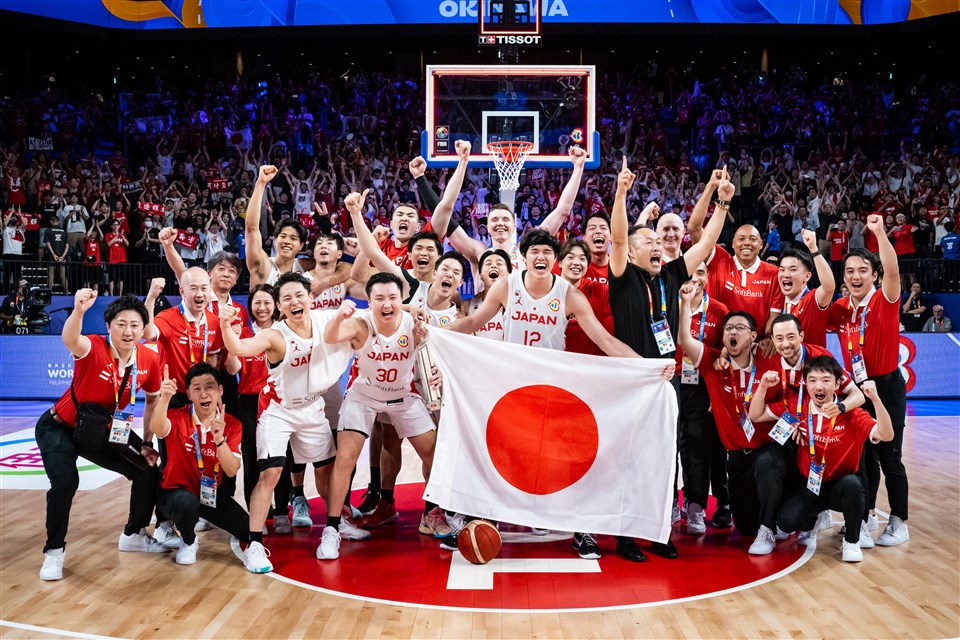
Mexico had some losses yet recorded wins over New Zealand and Jordan to reach the OQT. That allowed the 12 Warriors to leave Manila with a good taste in their mouths.
Georgia, in their first World Cup, were 16th. That is a tremendous achievement. They were also a big climber in the FIBA World Ranking and are now No. 23!
And a country's low final standing may not tell the whole story. Jordan finished dead last of the 32 teams yet played some outstanding basketball and that has given them something to build on. It is, after all, already a major achievement just to reach the World Cup.
Mike Taylor's assist
View this post on Instagram
I commentated games in Manila with Mike Taylor, the coach that led Poland into the World Cup for the first time in half a century, in 2019, and guided them into the Quarter-Finals. I reached out to Mike and he gave me an assist for this column.
Fundamentals Matter
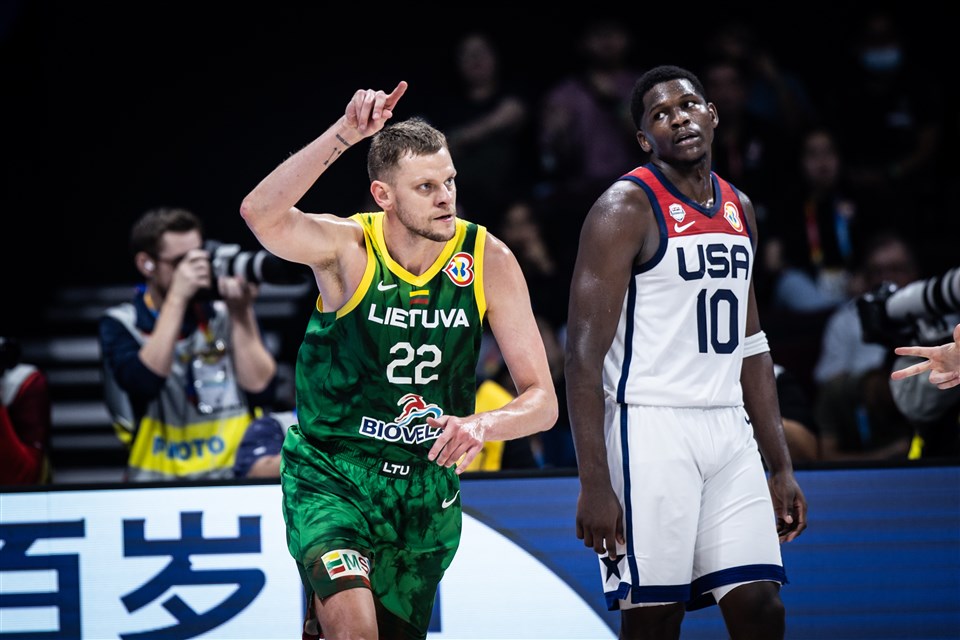
Mike wrote: "In over 300 FIBA games with NBA players, USA allowed the three highest points against them in Manila against Lithuania, Germany and Canada. It was clear USA was relying on talent, just trying to outscore everyone. Most talk around the USA post-World Cup is roster and personnel-based, but fundamentals matter.
"Adjusting to the FIBA style means opponents game planning and working to limit USA fast break opportunities while keeping them in the half court. To beat that, USA can focus on blocking out and rebounding to control the defensive boards and create transition opportunities. A roster of 12 NBA players is able to do that when they are committed to defensive fundamentals and physicality. You can add the offensive rebounds allowed and second chance points to Montenegro, Lithuania, Germany and Canada.
"The FIBA style is an adjustment and winning big will take hard work, physicality and attention to detail. A focus on the fundamentals is the first step to achieve for USA.
Teams overcoming injuries to "stars", playing without big names

Mike continued: "When teams lose key players, part of the next man up philosophy is everyone rising to the challenge together. Teams know they need each other because they are shorthanded without a key teammate. Opponents can also subconsciously relax a little as well. It often happens that the team focused and connected to overcome adversity finds rhythm and plays with an edge. We saw that with several teams at the World Cup."
Jeff Taylor
FIBA
FIBA's columnists write on a wide range of topics relating to basketball that are of interest to them. The opinions they express are their own and in no way reflect those of FIBA.
FIBA takes no responsibility and gives no guarantees, warranties or representations, implied or otherwise, for the content or accuracy of the content and opinion expressed in the above article.


